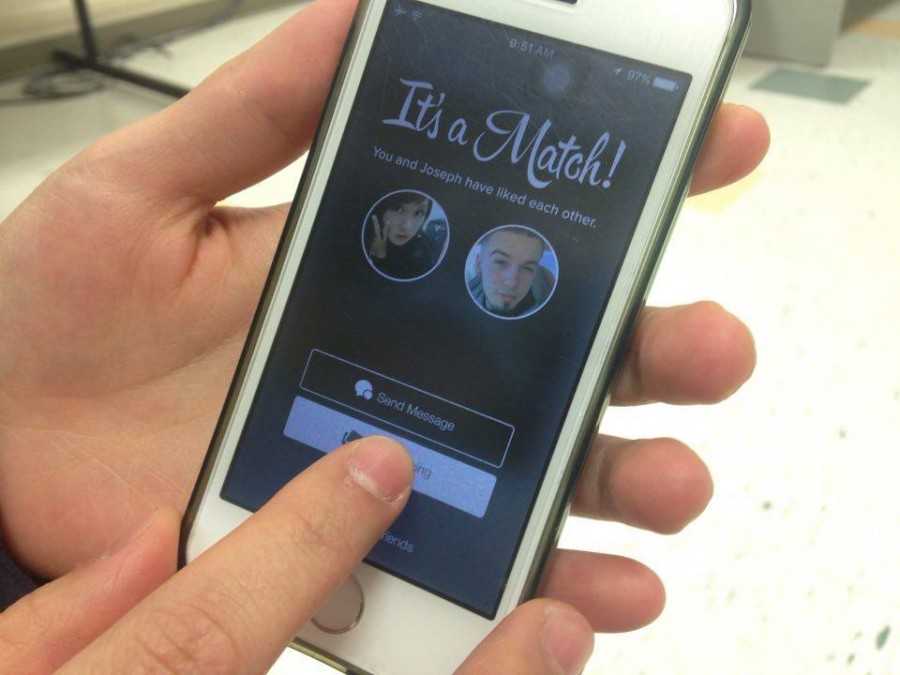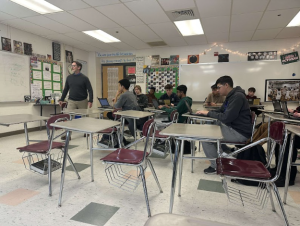Dangers of Tinder and other online dating apps
March 14, 2016
Dating would be far easier in real life if you received a notification every time a stranger found you attractive. In Tinder, that actually happens. Every time a stranger thinks you are attractive or “likes” you, he or she can “swipe right” and you can message them.
With the rise of social media sites and apps, it is becoming increasingly easier for strangers to contact each other over the Internet. High school students often use dating or online apps to meet new people for fun after being told about them by their friends.
Jane, a student at WA who wished to remain anonymous, described how she first began using Tinder.
“[Someone] told me to download it in gym. It was just for fun. I was mostly using it to see all the f***boys […] on Tinder and having them message me with their really bad, corny pickup lines. I screenshotted them and sent them to my friends,” she said.
However, as time progressed and she started matching with other females on the app, she started talking to someone who would a few weeks later, become her girlfriend.
“We had many common interests. I saw she played in BYSO […] Then we got into anime and YouTube. […] When I went to meet her, it was with the intention she would be my girlfriend,” said the anonymous source.
Jane’s time on Tinder started as casual interactions, but as she spent more time on the app, she found someone she was willing to open up and divulge information to. However, though in this case the person Jane met was legitimate, that does not always hold true.
Health teacher Brian Roark warns against meeting up with people students have first met online.
“I always go back to that YouTube video with the parents setting up their children […] They set up their children in a way that’s like ‘Oh, meet me outside on such-and-such a date,’ and the parents are like ‘Oh, my child would never do that,” and these people pull up in a van and there’s a driver they don’t know anything about and the young person gets in the van and all of a sudden they’re grabbed from behind. […] In the grand scheme of things, that’s only a scripted out thing, but that’s what I think about. In reality, that has a possibility of happening,” said Roark.
Senior health teacher Melanie Jozokos added that students are putting themselves at risk by meeting up with strangers since online identities can easily be faked, and people may not be who they seem to be online.
“I worry about students meeting people online that they’ve never met before because you really never know what’s on the other side of the computer or phone. I think it’s a scary practice,” said Jozokos.
Before Jane met with her girlfriend in person, she took proper measures to assure she was a real person.
“First she asked for my number and we spent some time texting, and then we snapchatted, then we FaceTimed, so she was definitely a real person,” said Jane.
However, the fact they were both female played into her decision to meet up in person; she would not meet up with a male from the online app.
“I didn’t think it was dangerous [to meet my girlfriend], but […] I would not have met up [had it been] a guy. […] The guys on Tinder are very forward and very sketchy,” she said.
According to Jozokos, that kind of attitude for guys is not uncommon, as there is a clear difference between male and female attitudes regarding “hooking up.”
“If you look at more sexual crimes, you will see more males as the perpetrators. I don’t know that I can explain why that is. […] I feel like more males are looking to have sex […] It’s more accepted for males; it’s another notch in the belt, and that’s why they’re more out there looking for it [compared] to females,” said Jozokos.
Despite some Tinder success stories people, including the occasional high school students, have had, there are still undeniable dangers and consequences when using online apps.
In this investigation on Tinder, a 42-year-old man matched with an 18-year-old girl and asked her to meet up. Though not illegal, potential relationships between people with that great an age difference can have unintended effects.
“I wouldn’t say 42 is middle aged, but closer to middle aged men preferring younger girls is common in our society. There is such a stress and a pressure to get that younger girl or be with that younger person. I think it’s very sad. […] There’s this whole idea of what’s out there is better. I would be interested to see how many of [the older] men [on the app] were married. I’m sure some of them probably were,” said Jozokos.
Roark added, “I’d say 42 and 18- At the age of 42, if you’re trying to meet an 18-year-old, I don’t understand what you’re looking for. There’s a huge disconnect. I have a friend who is 34. His girlfriend is now I think 22, and they’re engaged to be married. I think there’s a big disconnect with that as it is, let alone 42 and 18. I just think at 22, you’re looking for different things in your life than you are at ages 34 or 35.”
Overall, the consensus seems to be that students should wait until later in their lives to use online dating apps or meet strangers online, and even then, they should use reputable sites, such as those that require a fee.
“I would encourage people to wait until they’re a little bit older[ …] I think [it would be better] to have a little more worldly experience and a little more background to make healthier decisions,” said Jozokos.
Click here to read about our editor getting a fake profile on Tinder to investigate it.
Click here to see student opinions on online dating in high school.
Click here to read our editor’s opinion on online safety education in high school.







